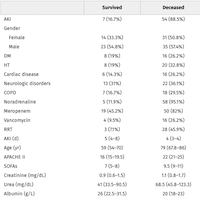Use of ‘tidal volume challenge’ to improve the reliability of pulse pressure variation
ccforum.biomedcentral.com
Fluid loading is usually the first step in the resuscitation of patients with acute circulatory failure. Fluid responsiveness is defined as the ability of the left ventricle to increase its stroke volume in response to fluid administration. Studies have shown that only about 50% of unstable critically ill patients will actually respond positively to a fluid challenge. Uncorrected hypovolemia may result in inappropriate administration of vasopressor infusions, which may in turn affect tissue oxygenation, leading to organ dysfunction and death.
The PPV is a dynamic parameter that can be easily recorded from a bedside monitor and reliably predicts preload responsiveness. In addition, it does not require continuous cardiac output monitoring or any other tools or maneuvers to be performed. One of the major limitations with its use in patients receiving controlled mechanical ventilation is that it is unreliable during low tidal volume ventilation, which is now widely practiced in ICU patients.















